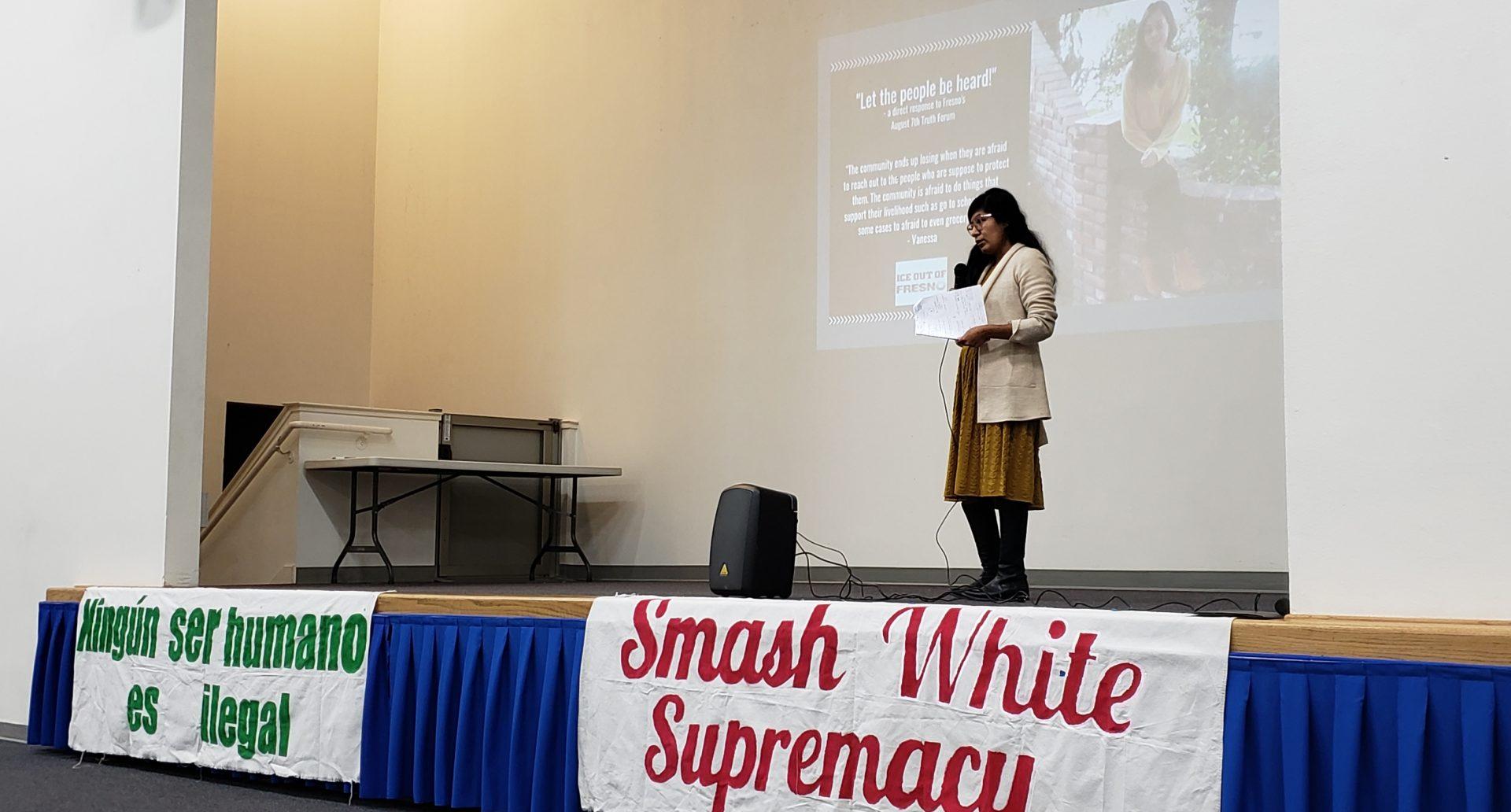Local immigrant rights advocates from the ICE Out of Fresno Coalition and other community members met on Sunday to discuss the cooperation of the Fresno County Sheriff’s Office with Immigrant Customs Enforcement (ICE).
The meeting, held at an east Fresno church, aimed to respond to a previously held forum required by law by the Fresno County Board of Supervisors on Aug. 7. That forum meant to provide details about the sheriff’s office’s collaboration with immigration enforcement agencies.
Sunday’s event featured speakers from the American Civil Liberties Union, California Immigrant Youth Justice Alliance and the Services, Immigrant Rights and Education Network (SIREN), as well as individuals from the Central Valley affected by immigration laws.
Gonzalo Melchor, a public health major at Fresno State and member of the Fresno Immigrant Youth in Action who served as one of the volunteers at the forum, said the goal of Sunday’s meeting was to make individuals aware of their rights when interacting with ICE.
“What I would like people to take away from this forum is to gain knowledge that there are laws that the board is supposed to follow, that they’re [the board] not doing,” Melchor said. “A big issue that they have in Fresno is that ICE is arresting people in the courthouses.”
Such arrests by ICE were deemed unlawful by Senate Bill 54, a bill signed last year by California Gov. Jerry Brown, which also states that police and sheriffs may not detain individuals for extra time that may lead immigration agents to pick those individuals up. The law also prohibits police and sheriff’s offices from allowing individuals to be interviewed by immigration agents without the individuals’ written consent.
Maria Romani, an immigrant rights policy attorney from the ACLU Foundation of California, spoke about the rights provided in SB 54 and offered statistics provided by Fresno County Sheriff Margaret Mims regarding the sheriff’s office’s cooperation with ICE.
This cooperation, Romani said, included 18,000 ICE interview consent forms being issued to individuals in the sheriff’s custody in 2017, of which 15,000 declined to be interviewed. She also said that 223 individuals had been transferred into ICE custody in 2017, of which four were U.S. citizens.
“Mims was letting ICE into the jails, and people would do interviews with ICE without knowing that it was ICE,” Romani said. “Now, law enforcement needs to let somebody know in writing, ‘Hey, this is a voluntary interview with ICE; you don’t have to do it. They might interview you to get information to deport you.’”
Melchor also attended the Board’s Aug. 7 forum. He said the forum had been ended early and did not allow all the individuals who wished to voice their opinion to do so.
“[The supervisors] weren’t paying attention to us. They were laughing and talking while the people were talking,” Melchor recalled. “They have responsibility over the sheriff’s office, but they’re not doing anything to prevent what the sheriff is doing.”
Alexander Orozco, a political science student at Fresno City College who attended the event, hopes meetings like Sunday’s help educate community members on immigration law to better protect their civil rights.
“It’s important that people know what rights they have in order to be safer,” Orozco said. “You can’t really depend on the government, considering all of the things they do that are detrimental, especially to disadvantaged communities.”
Orozco said he hopes to aid disadvantaged communities by attending law school to serve as an attorney, focusing on immigration law.
Melchor added that he would like to see more Fresno State students take part in the discussion, and floated the idea of forming a student group to provide an opportunity to address such issues on campus.
“I know, as college students, we’re all really busy in school,” Melchor said. “But, a lot of the students in Fresno State are from the area of the Valley, and they need to be aware of what’s going on.”





